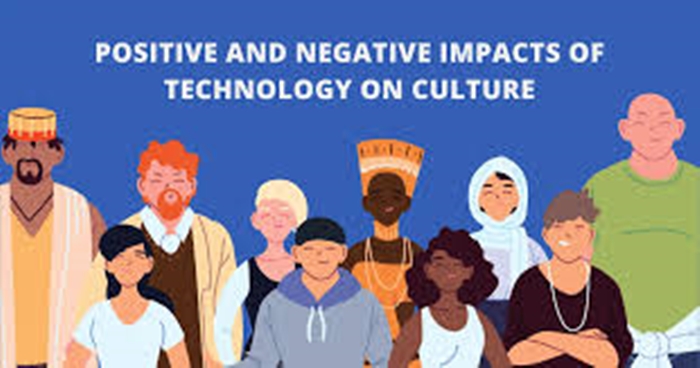In this article, we discussed the internet effect on different culture, we also talked about how internet affect culture. We started by defining internet.
Definition
The Internet is a massive network that connects computers all over the world. Through the Internet, people can share information and communicate from anywhere with an Internet connection.
Culture is often associated with a specific region or location, and can be shaped by regional traditions, religious beliefs, and historical experiences. For example, African culture is complex and diverse, with different traditions in different parts of the continent.
Culture has significantly advanced from the invention and use of the web. Culture is defined as shared behaviors, ideas, and objects that create a way of life passed from one generation to another. Recognizing the impact that the internet has on society and culture is very important. It is clear that the Internet influences culture. Its effects can even be considered as a culture of its own. If we learn the results, we can help make the internet more beneficial by focusing on the correctness of the information and by realizing its limitations.
The Internet has a profound effect on cultures around the world, influencing them in various ways:
Cultural Exchange and Globalization
Access to Diverse Content: The Internet allows people to access a wide variety of cultural content, including music, films, literature, and art from different parts of the world. This exposure can lead to a greater appreciation of diverse cultures.
Cultural Hybridization: As cultures interact online, they can blend, leading to new forms of cultural expression. For example, global music genres often incorporate elements from various cultural traditions.
Preservation and Promotion of Local Cultures
- Digital Archiving: Many communities use the Internet to document and preserve their cultural heritage, including languages, traditions, and practices that may be endangered.
- Cultural Promotion: Local artists and cultural practitioners can use social media and websites to showcase their work to a global audience, helping to promote and sustain their cultural identity.
Cultural Homogenization
Dominance of Major Cultures: This can contribute to cultural homogenization, where dominant cultures (primarily Western) overshadow local cultures. This can lead to the erosion of unique cultural identities.
Consumerism and Global Brands: The spread of global brands and consumer culture can influence local lifestyles, leading to changes in traditional practices and values.
Communication and Social Interaction
Connecting Communities: The Internet facilitates communication among individuals from different cultural backgrounds, fostering understanding and collaboration.
Social Movements: Online platforms have become crucial for organizing social movements, allowing marginalized communities to advocate for their rights and share their narratives.
Education and Awareness
Educational Resources: The Internet provides access to a wealth of information and educational resources, promoting awareness of different cultures and global issues.
Cultural Sensitivity: Increased exposure to diverse perspectives can lead to greater cultural sensitivity and awareness, although it can also lead to misunderstandings if not approached thoughtfully.
Challenges and Conflicts
Misinformation: The quick supper of information can lead to the proliferation of stereotypes and misinformation about cultures, which can exacerbate tensions and misunderstandings.
Regulator and Control: In some regions, governments may restrict access to certain cultural content, limiting the impact of the Internet on cultural exchange.
Conclusion
General, the Internet serves as a disingenuous blade for cultures around the world. While it offers opportunities for cultural exchange and preservation, it also poses challenges related to homogenization and the potential loss of cultural identities. The effect of the Internet on culture is complex and varies significantly depending on local contexts and global dynamics.
READ: The Effect of Recession on Nigeria Economy

